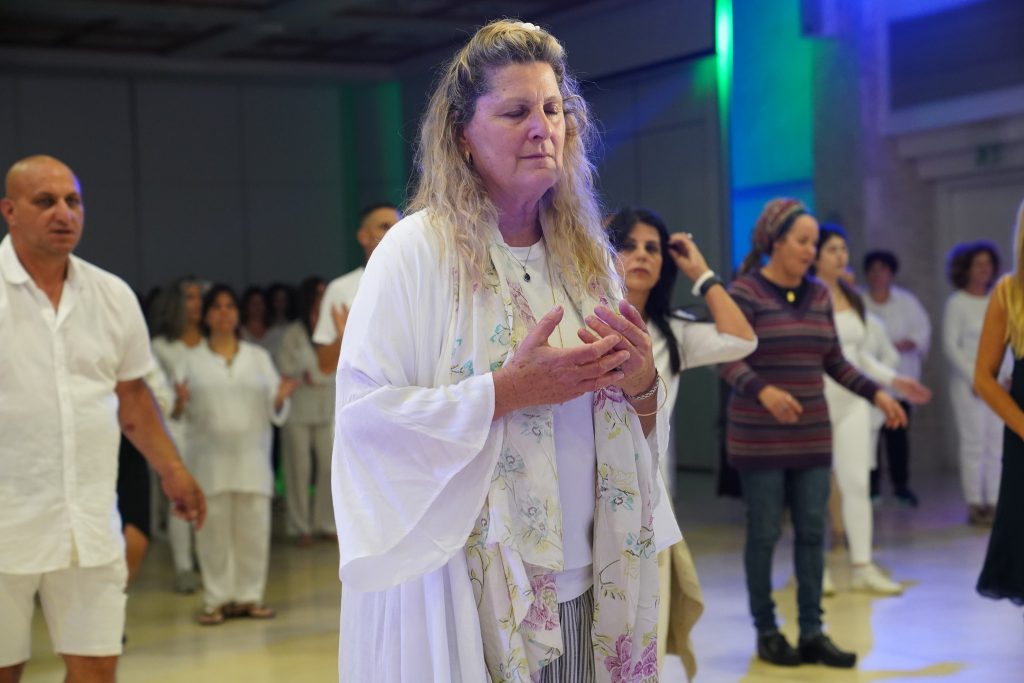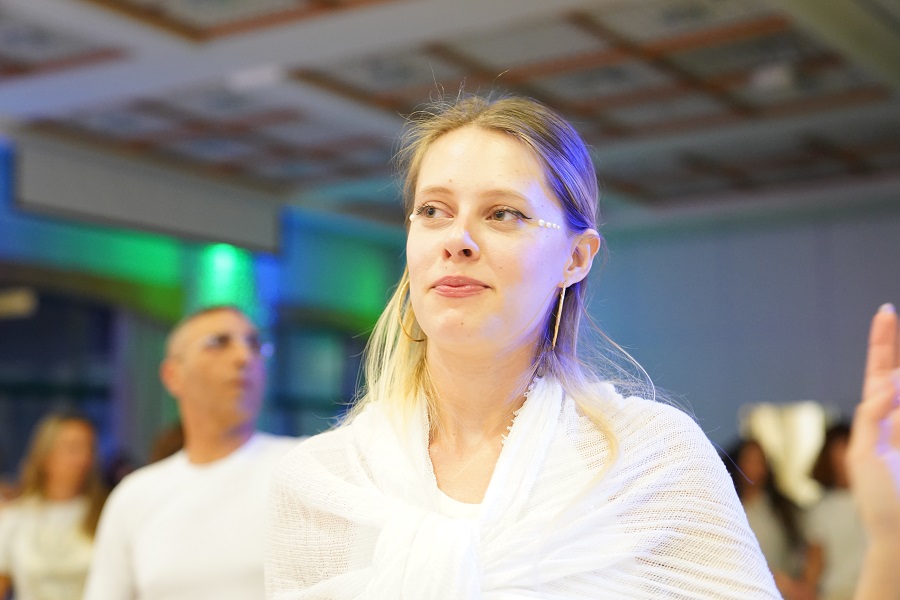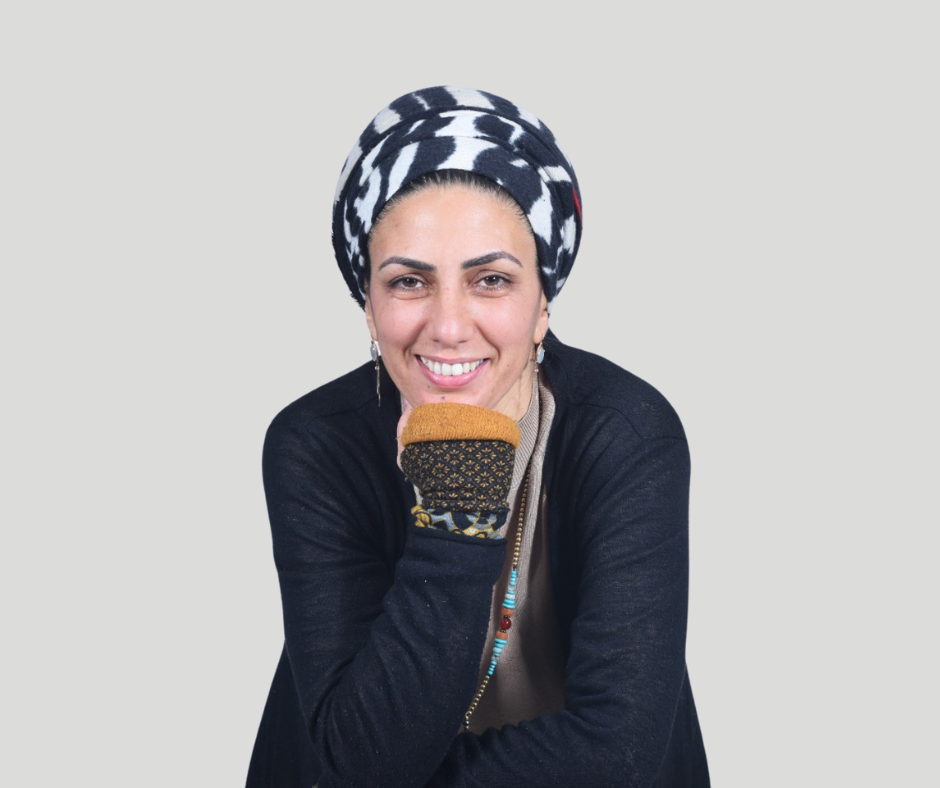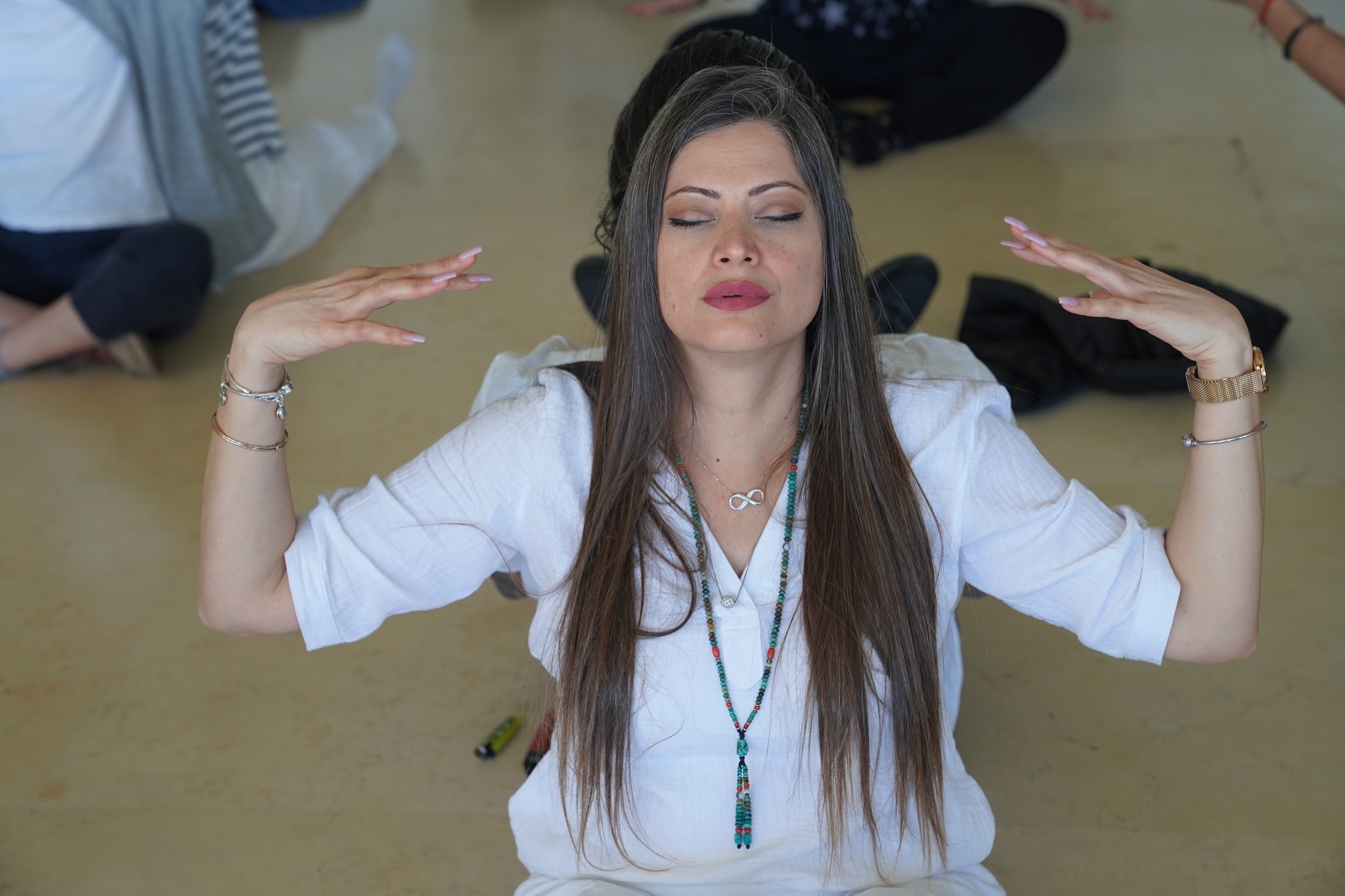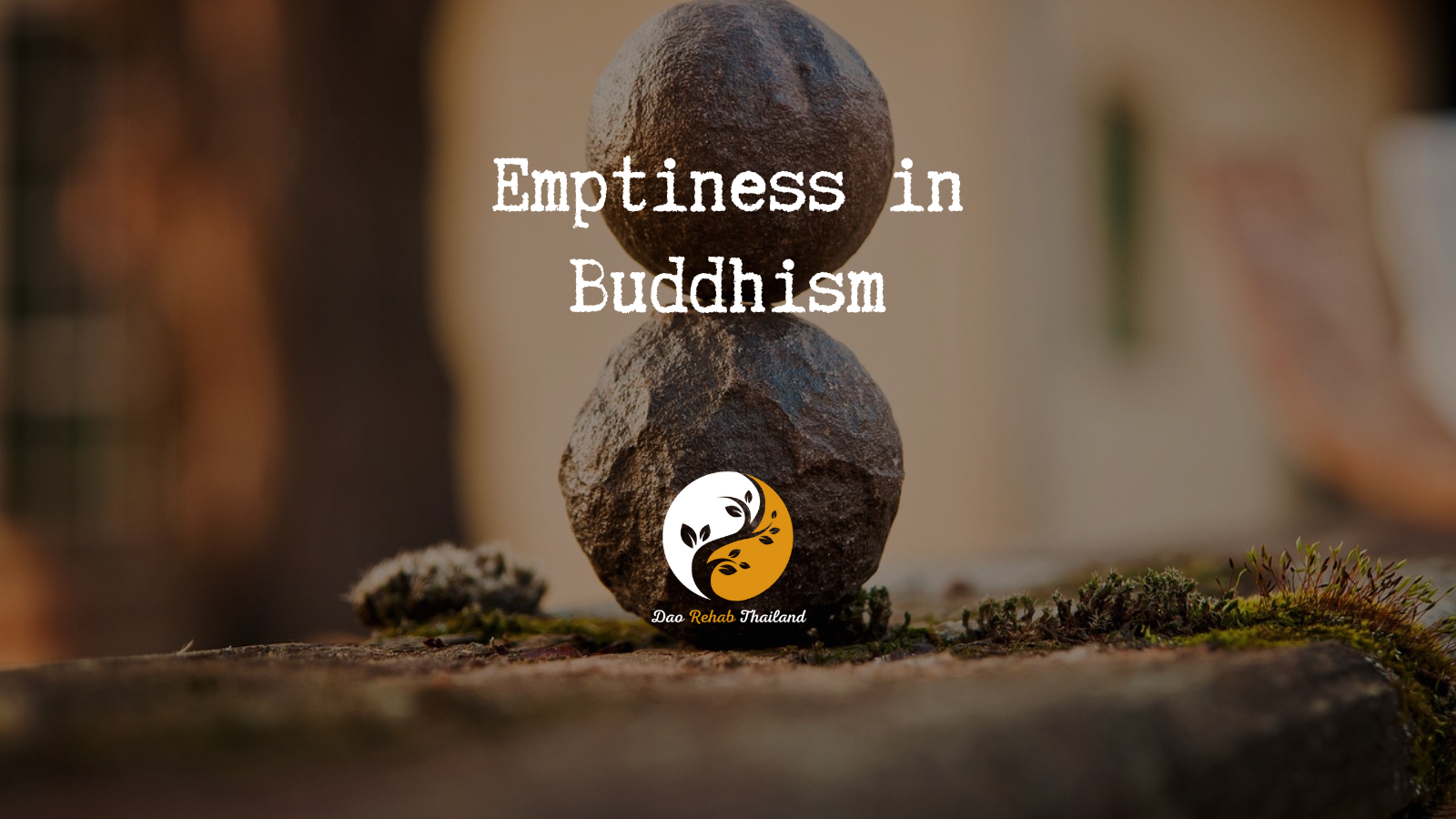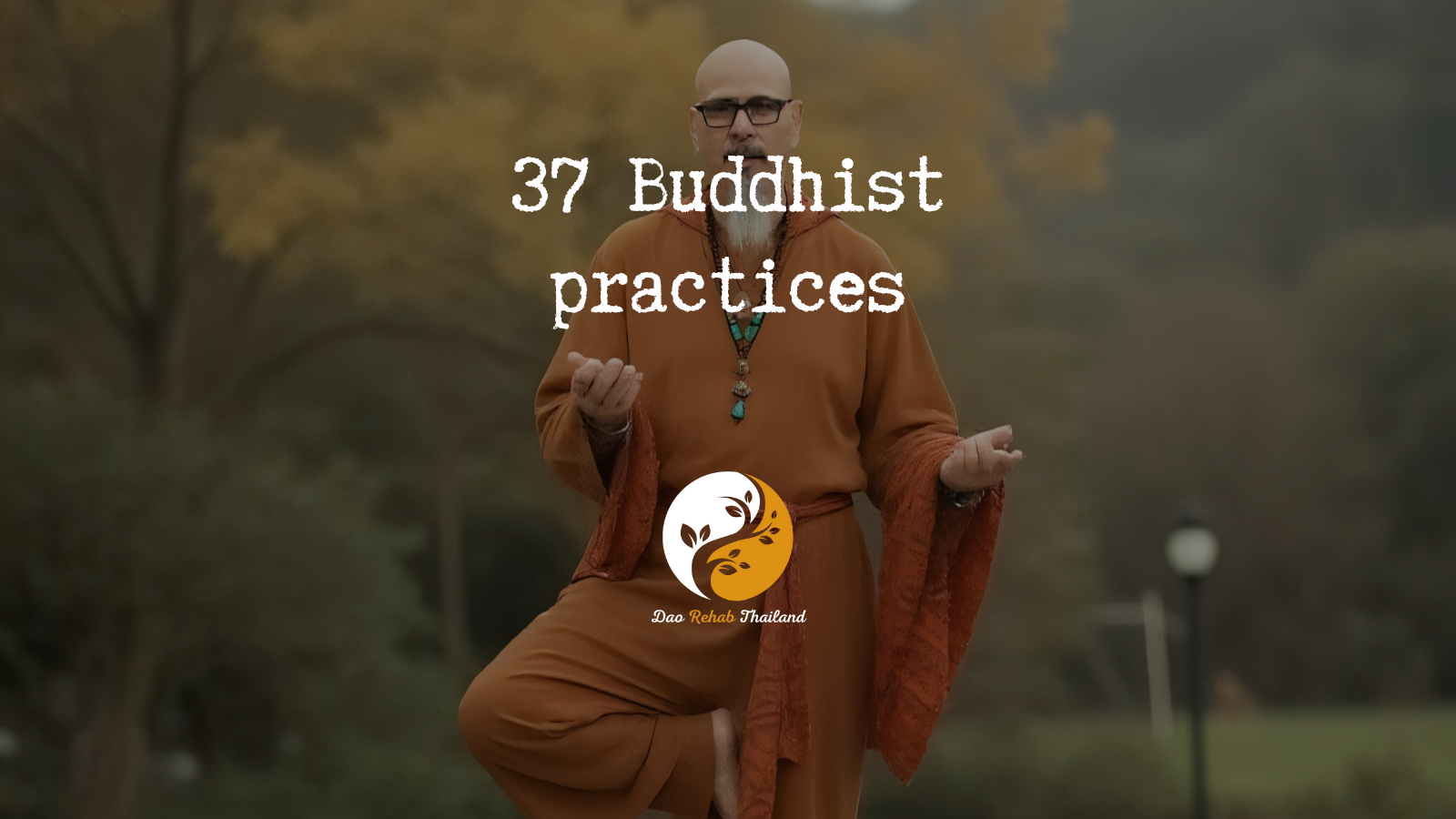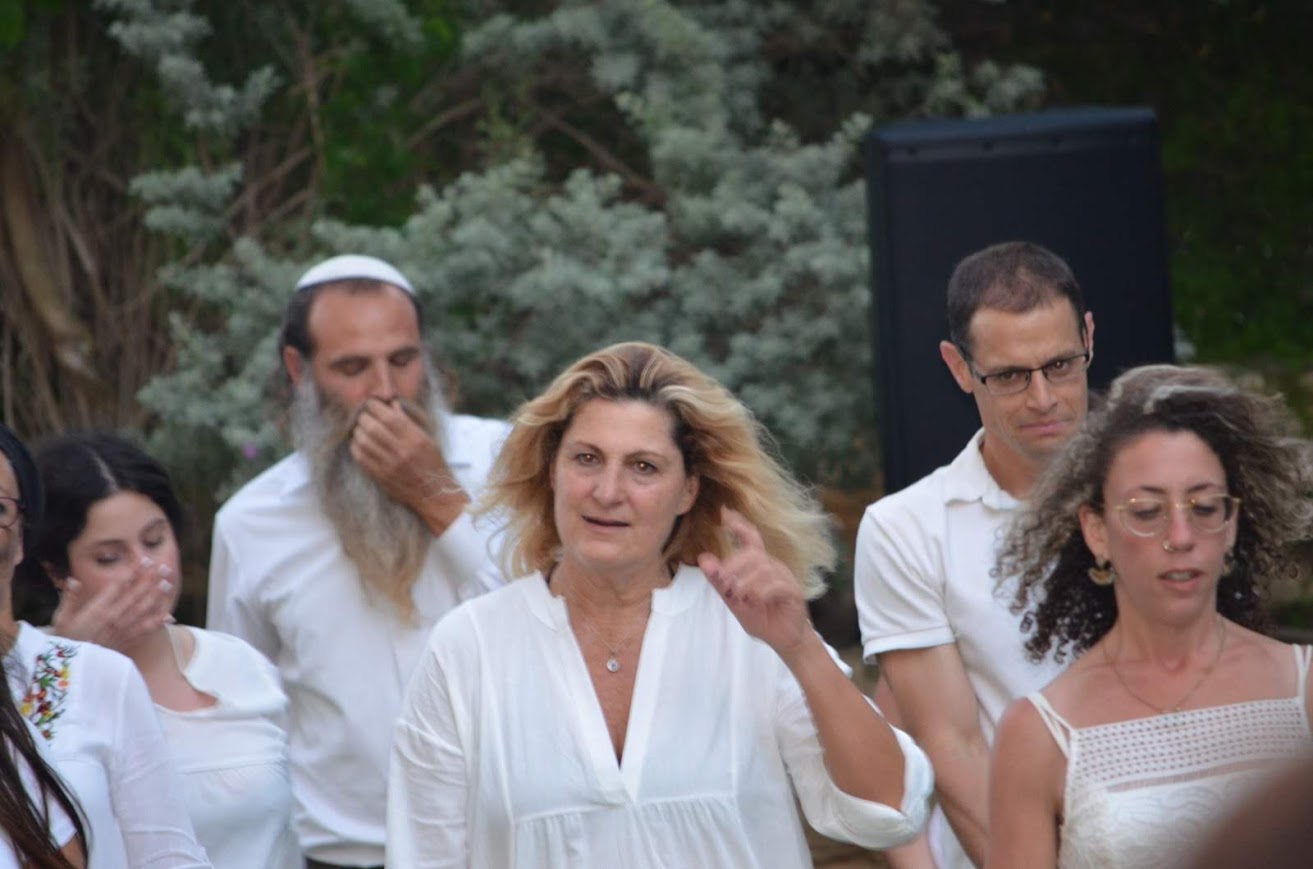
Just for Today – Treatment in Thailand
Just for Today
dao rehab center

Discover the path to inner peace with the 12-step course in the DaoTherapy method.
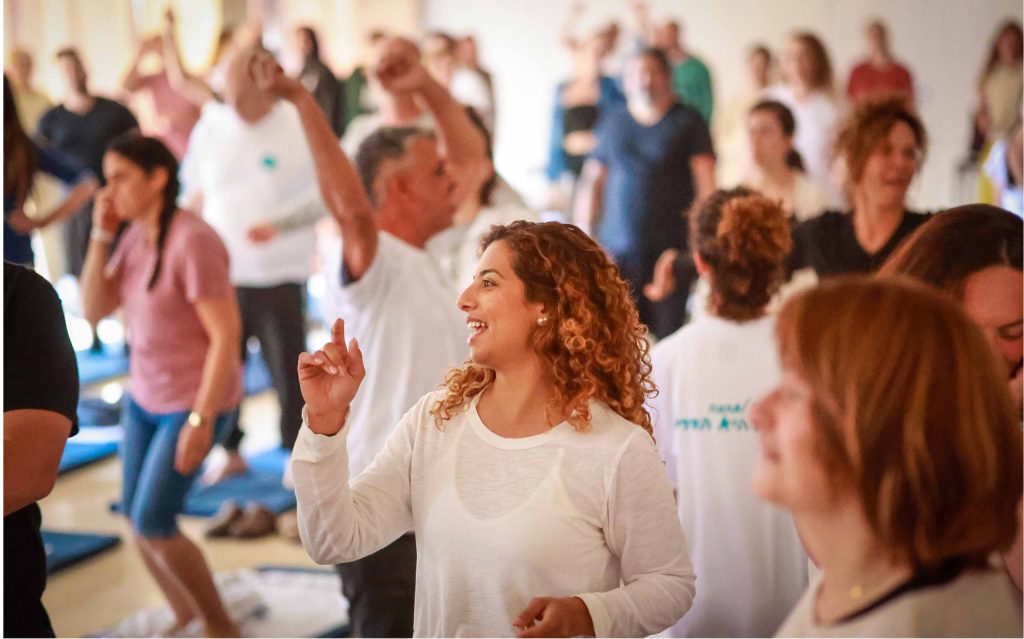
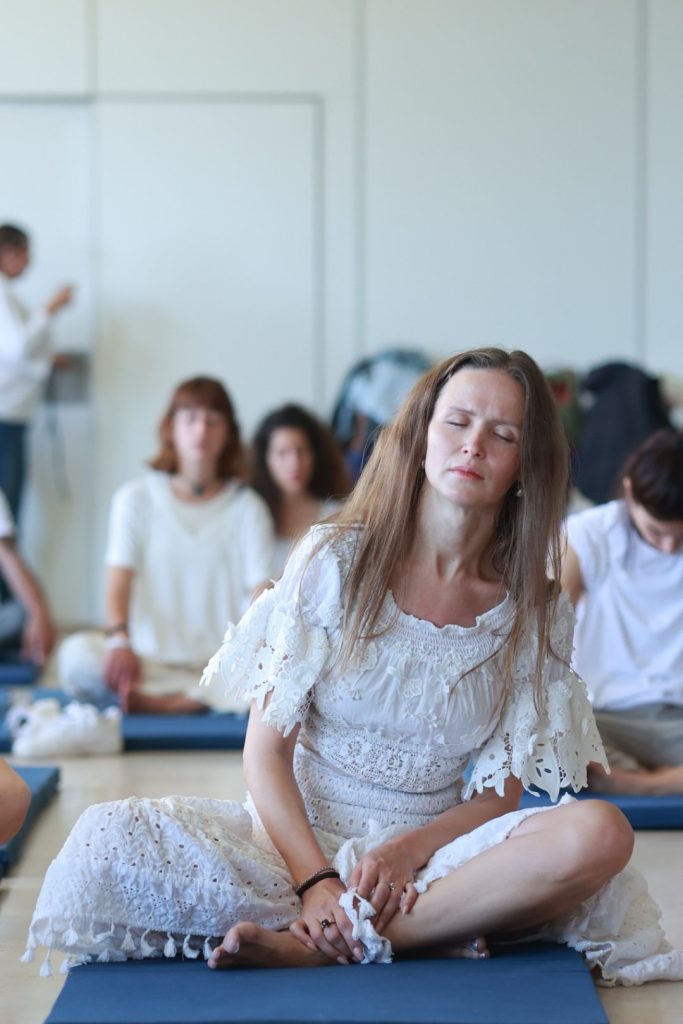
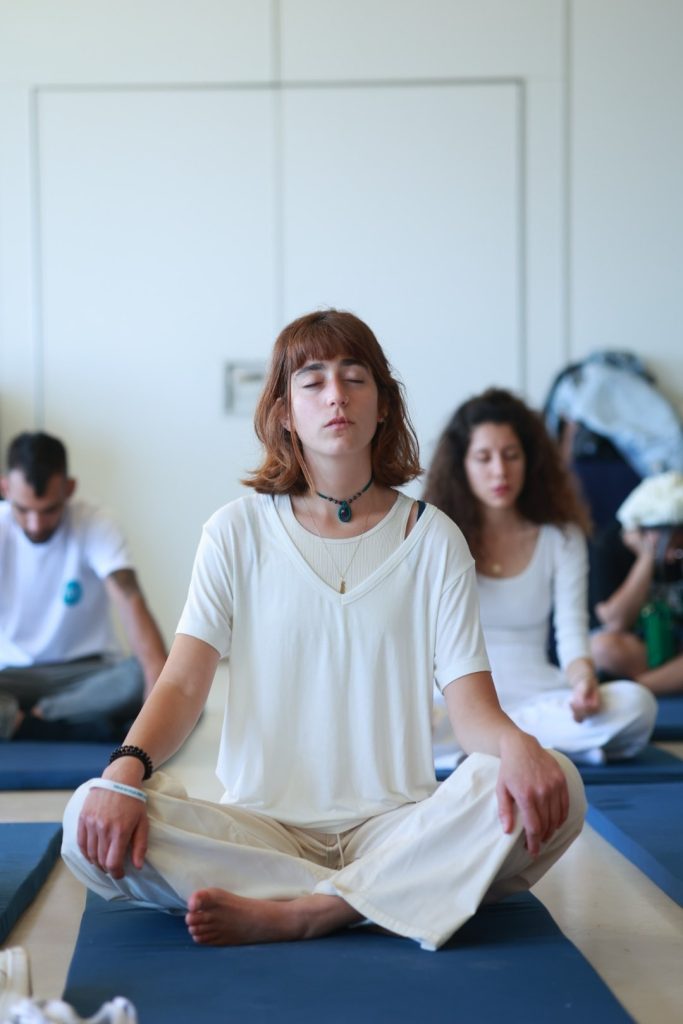
“Just for Today” is a common phrase used in recovery programs like Narcotics Anonymous (NA) and reflects the idea of focusing on the present moment and taking life one day at a time. It emphasizes the importance of handling challenges, temptations, and progress without being overwhelmed by the past or future.
In NA, “Just for Today” often serves as a reminder to stay clean, maintain focus, and take manageable steps toward recovery, personal growth, and healing. It’s about living mindfully, appreciating each day as an opportunity for growth, and making intentional choices that support well-being and recovery.
In essence, “Just for Today” invites us to concentrate on the present and trust that by making the right choices today, we are moving towards a better future.
Your recovery,
is in our hands
The entire team of experts at Dao-Therapy Rehab Thailand is at your service for any matter related to trauma and addiction recovery in Thailand.
daotherapy
"The Tool That Saved My Life"
Life is an ongoing journey filled with challenges and obstacles, but the way we choose to face these difficulties can profoundly affect the quality of our lives and our sense of fulfillment. “Just for Today” is a philosophy that encourages focusing on the present moment, rather than worrying about the future or being consumed by the past. By embracing this approach, we can find meaning and satisfaction in the small, everyday actions, handle difficulties more effectively, and experience a sense of victory and joy each day.
Living just for today
"Living just for today" does not mean ignoring responsibilities or neglecting future planning; rather, it encourages focusing on the challenges we face in the present moment. By breaking down large goals into smaller, more manageable tasks, they become achievable and less intimidating. This way, each day offers an opportunity to experience success and satisfaction. Additionally, by handing over worries about the future to a higher power, we free ourselves from the burden of expectations and anxieties, allowing us to focus on meaningful actions in the present.
For individuals dealing with difficulties such as addiction, depression, anxiety,
For individuals dealing with difficulties such as addiction, depression, anxiety, or various life crises, living just for today can be a powerful coping strategy. Instead of feeling overwhelmed and paralyzed by the enormous challenges ahead, they can focus on the small, immediate steps needed to navigate through the current day. Recognizing that each day offers a fresh start and an opportunity for growth can provide hope and motivation to keep moving forward, even when the road seems long and difficult.
be fully present
It is important to note that living just for today does not imply living without purpose or direction. On the contrary, it is an invitation to be fully present and aware of each moment, appreciating the gift life offers us. It means trusting the process and the journey, without trying to control the final outcome. By letting go of the need to predict or control the future, we open ourselves to discovering the beauty and meaning inherent in the present.
The philosophy of "Just for Today"
The philosophy of "Just for Today" can be applied to all areas of life, from simple daily tasks to dealing with more complex challenges. This could include focusing on the next meeting, completing a task at work, or simply being fully present during a conversation with a loved one. Whenever thoughts of the past or worries about the future arise, one can gently bring attention back to the present and the actions that can be taken here and now. In conclusion, living "Just for Today" is a powerful practice that can transform how we experience life and handle challenges. It is an invitation to recognize the power of the present moment, to find meaning and purpose in small actions, and to trust the process. By adopting this philosophy, we can deepen our sense of satisfaction, joy, and peace, and live fuller, more fulfilling lives. This is a gift anyone can give themselves, day by day, moment by moment.
Living just for today
By: Dr. Avraham Mizrahi
Life is a wondrous and challenging journey, filled with joys, difficulties, and constant changes. Each of us faces obstacles and crises, whether they are personal challenges, health issues, financial difficulties, or complex relationships. However, the way we choose to handle these difficulties can profoundly affect the quality of our lives and the sense of fulfillment and meaning we experience. This is where the power of the “Just for Today” philosophy lies—a mindset that encourages us to focus on the present, accept life’s uncertainties, and find joy and meaning in the small, everyday moments.
**Life as a Journey of Challenges and Opportunities**
Life can be seen as an ongoing journey filled with both challenges and opportunities. Every step presents us with new obstacles to overcome, but also with valuable opportunities for growth, learning, and self-discovery. This perspective allows us to embrace life’s difficulties not as burdens, but as stepping stones to becoming stronger, wiser, and more resilient.
Challenges, whether big or small, shape who we are. They test our patience, perseverance, and ability to adapt. However, within each challenge lies the seed of an opportunity—an opportunity to grow, to learn something new, or to see the world from a different perspective. By viewing life as a journey, we can approach each moment with curiosity, understanding that even the toughest moments are temporary and serve a purpose in our development.
Opportunities also come in unexpected forms. Sometimes, they are disguised as difficulties, while at other times, they are the quiet moments that invite us to pause, reflect, and appreciate what we have. When we open ourselves to seeing life this way, we begin to understand that every experience, whether positive or negative, offers the potential for personal transformation.
Ultimately, life as a journey of challenges and opportunities teaches us that it is not about avoiding difficulties, but about learning how to navigate through them with grace and resilience. By embracing this mindset, we can move forward with hope, courage, and a sense of purpose, knowing that each step brings us closer to who we truly are.
“Living just for today” does not mean ignoring the future or avoiding planning and setting goals. Rather, it is a way of life that encourages us to appreciate the present and focus on the opportunities it holds, instead of being lost in thoughts of the past or worries about the future. By adopting this approach, we acknowledge that the present moment is the only place where we have real control and the ability to act. While we cannot change the past or predict the future with certainty, we can take responsibility for the present and choose how to respond to the circumstances of our lives.
“Living just for today” can be a powerful coping strategy for individuals facing significant challenges, such as addiction, health issues, financial crises, or emotional difficulties. When confronted with a complex, long-term problem, it’s easy to feel overwhelmed and paralyzed by the sheer size of the task. However, by breaking the challenge down into small, daily steps, the process becomes clearer and more achievable. Instead of focusing on the distant peak, “just for today” encourages us to focus on the next step, on the action we can take here and now to move toward our goal.
This approach relieves the pressure of needing to solve everything at once. It empowers us to be present, to take manageable steps, and to find satisfaction in small victories along the way. By concentrating on what we can control today, we build the resilience and momentum necessary to face long-term challenges without feeling consumed by them.
One of the significant advantages of “living just for today” is the ability to find meaning and satisfaction in the small, everyday actions. When we are not distracted by regrets about the past or worries about the future, we can fully appreciate the opportunities and experiences that the present offers. These moments can be as simple as an honest conversation with a friend, a peaceful walk in nature, or even enjoying a delicious meal. When we are fully present and aware of these experiences, we cultivate a deeper sense of gratitude and contentment. Each day presents us with untapped opportunities to celebrate the gift of life, and by living “just for today,” we can learn to recognize and embrace them.
Life is full of uncertainty and unexpected changes, which can trigger anxiety and concern about the future. However, “living just for today” provides us with the resilience and flexibility needed to face these challenges. When we accept that some things are beyond our control, we can let go of the need to predict or judge every outcome. Instead, we can focus on learning and adapting as we go, knowing that we are doing our best in the given circumstances. By cultivating confidence in our ability to handle whatever life throws our way, we become more resilient and better prepared for the inevitable changes that come our way.
“Living just for today” can also help us develop greater compassion and empathy toward ourselves and those around us. When we acknowledge that every person is dealing with unique challenges and that we are all doing our best in each moment, we can become more forgiving of our own and others’ shortcomings and limitations. Instead of being judgmental or critical, we can adopt a stance of understanding and acceptance, offering encouragement and support both to ourselves and those around us. Cultivating self-compassion is an especially important skill when we encounter obstacles or setbacks, as it enables us to recover more quickly and continue moving forward.
**Cultivating Compassion and Empathy Toward Ourselves and Others**
Compassion and empathy are powerful tools for fostering deeper connections, both with ourselves and with others. By embracing these qualities, we create a more understanding and supportive environment, allowing healing and growth to flourish. Cultivating compassion and empathy requires awareness, patience, and an openness to both our own experiences and the experiences of others.
1. Self-Compassion: One of the first steps in nurturing compassion is learning to be kind and gentle with ourselves. Often, we are our harshest critics, but self-compassion encourages us to treat ourselves with the same kindness we would offer a friend. This involves recognizing that we all make mistakes, struggle, and face difficulties—it’s part of being human. By practicing self-compassion, we can let go of perfectionism and embrace a more forgiving and supportive attitude toward ourselves.
2. Empathy Toward Others: Empathy is the ability to understand and share the feelings of another. By putting ourselves in someone else’s shoes, we can see the world from their perspective, fostering deeper connections and mutual understanding. When we listen with empathy, we offer others the space to express themselves without judgment, creating a safe and nurturing environment.
3. Active Listening: To truly cultivate empathy, it’s essential to listen actively and attentively to others. This means being fully present in conversations, setting aside distractions, and focusing on what the other person is saying. By doing this, we show that we value their feelings and experiences, which can strengthen our relationships.
4. Letting Go of Judgment: Compassion and empathy thrive when we let go of judgment, both toward ourselves and others. Recognizing that everyone has their own unique struggles and challenges allows us to approach situations with greater understanding and kindness. By releasing judgment, we create space for acceptance and healing.
5. Compassionate Action: Compassion is not only about feeling for others but also about taking action to alleviate suffering. Whether it’s offering a helping hand, giving words of encouragement, or simply being present for someone in need, compassionate actions have the power to make a profound difference in the lives of others.
6. Practicing Gratitude: Gratitude can enhance our capacity for compassion and empathy. By appreciating the kindness and support we receive from others, we are more likely to extend that same kindness to those around us. Gratitude also helps us remain mindful of the connections we share with others, reinforcing a sense of shared humanity.
By cultivating compassion and empathy, we not only enrich our relationships but also create a more peaceful and supportive inner world. These qualities help us navigate life’s challenges with grace and understanding, making us more resilient and connected to both ourselves and others. In a world that often feels disconnected, compassion and empathy serve as bridges, bringing us closer together and fostering a sense of belonging and love.
One of the greatest gifts of “living just for today” is the ability to let go of the need to control the final outcomes of our efforts. When we accept that we may not always achieve specific results, we can focus on what is within our control—the efforts and intentions we bring to each task or interaction. In doing so, we free ourselves from the pressure of unrealistic expectations and allow ourselves to enjoy the process itself. Instead of being fixated on success or failure, we can concentrate on the learning, growth, and experiences we gain along the way. This is a profound shift in perspective that can lead to a greater sense of peace and release.
**Letting Go of the Need to Control Outcomes**
Letting go of the need to control outcomes is a powerful practice that can bring a sense of peace and freedom into our lives. While it’s natural to want to shape and influence the results of our actions, holding too tightly to specific outcomes can lead to stress, frustration, and disappointment, especially when things don’t go as planned.
1. Trusting the Process: Life is full of uncertainties, and not everything is within our control. By learning to trust the process, we can accept that things will unfold in their own time and in ways we may not have anticipated. This mindset encourages us to focus on the journey rather than fixating on the destination.
2. Focusing on the Present Moment: When we let go of the need to control future outcomes, we are free to focus on the present moment, where we have the most power to act. Instead of worrying about what might happen, we can channel our energy into the here and now, making mindful choices that align with our values and intentions.
3. Detaching from Expectations: Expectations often create a rigid framework for how we believe things should unfold. By releasing attachment to specific expectations, we open ourselves to the possibility that things may turn out differently, but still beneficially. Letting go of these expectations can reduce disappointment and help us embrace new opportunities.
4. Acceptance of What Is: When we release control, we practice accepting reality as it is, not as we wish it to be. Acceptance doesn’t mean passivity—it means recognizing what’s within our power and what isn’t. By accepting situations as they are, we can respond more effectively, without wasting energy on trying to change the unchangeable.
5. Embracing Flexibility: Letting go of control allows us to remain flexible and adaptable. When we are open to the flow of life, we can better navigate unexpected changes and challenges, using them as opportunities for growth rather than obstacles.
6. Finding Peace in Uncertainty: Life is inherently unpredictable. By embracing uncertainty and letting go of the need to predict or control every outcome, we can find peace in knowing that not everything needs to be figured out or controlled. This surrender opens up space for curiosity, growth, and spontaneous joy.
In summary, releasing the need to control outcomes allows us to live more freely and fully. It enables us to approach life with openness, acceptance, and a deeper sense of trust in the process. By focusing on what we can control—our actions, mindset, and responses—we experience less stress and more peace, knowing that we are doing our best while letting go of what’s beyond our control.
In the fast-paced and online modern era, it’s easier than ever to lose connection to the present. We are bombarded with constant stimuli, endless information, and relentless pressure to be productive and efficient. However, it is precisely in this time that the practice of “living just for today” becomes more essential. By intentionally creating breaks from technology, focusing on one task at a time, and giving our full attention to the people and experiences in front of us, we can cultivate a deeper connection to the present. This can include mindful breathing throughout the day, practicing mindfulness, or setting healthy boundaries around our use of screens and social media. Through a conscious effort to live in the moment, we can find balance and meaning even in a fast and digital world.
**Living in the Present in a Fast-Paced Digital World**
In today’s fast-paced digital world, living in the present moment can be particularly challenging. We are constantly bombarded by notifications, social media, and the pressure to stay connected and productive. This digital overload often pulls our attention away from the present, making it difficult to focus on the here and now. However, by practicing mindfulness and setting intentional boundaries, it is possible to cultivate a sense of presence and balance, even in a world that moves at lightning speed.
1. Digital Mindfulness: Being mindful of our digital habits is essential. We can start by noticing how much time we spend on devices and how often we are distracted by them. Setting specific times for checking emails or social media, and being deliberate about when we engage with technology, allows us to reclaim control over our attention and helps us stay more present in our daily activities.
2. Setting Boundaries: Establishing clear boundaries with technology can create space for us to be more present. This could mean having device-free meals, setting limits on screen time, or designating moments throughout the day to disconnect and recharge. By doing so, we create opportunities to engage more deeply with ourselves and those around us.
3. Practicing Mindfulness: Mindfulness practices, such as deep breathing, meditation, or simply taking a pause, can help ground us in the present moment. These practices allow us to slow down and reconnect with our thoughts, feelings, and surroundings, even amidst the chaos of the digital world.
4. Focusing on One Task at a Time: Multitasking, especially in the digital realm, often reduces the quality of our attention and productivity. By focusing on one task at a time, whether it’s work, conversation, or leisure, we can fully immerse ourselves in the present moment and experience greater satisfaction and effectiveness in what we do.
5. Appreciating Small Moments: The digital world often promotes a mindset of constant achievement and comparison. By stepping back and appreciating the small, quiet moments—like a walk in nature, a conversation with a loved one, or simply enjoying a meal—we remind ourselves that life’s true richness is found in the present, not in the virtual world.
6. Digital Detox: Regular breaks from technology, even for short periods, can help reset our minds and remind us of the value of being present. A digital detox can offer the clarity and peace needed to reconnect with ourselves and our surroundings, away from the constant demands of the online world.
Living in the present in a fast-paced digital world requires conscious effort, but it is possible. By practicing mindfulness, setting boundaries, and focusing on meaningful real-life interactions, we can cultivate a deeper connection to the moment and lead more fulfilling, balanced lives.
To make “living just for today” an integral part of our lives, it’s important to practice this philosophy regularly. You can start by applying this approach to simple daily tasks, such as preparing a meal, cleaning the house, or completing a work assignment. Whenever thoughts about the past or future begin to distract you, gently bring your focus back to the activity in front of you. Celebrate the small successes and appreciate the effort you’re putting in, regardless of the final outcome. With time and practice, this habit will become more natural and intuitive.
By consistently practicing this mindful approach, you will cultivate a deeper sense of presence and fulfillment in your everyday life, allowing you to truly embrace each moment.
Ultimately, “living just for today” is a precious gift we can give ourselves again and again. By embracing this philosophy, we free ourselves from the burdens of the past and the worries of the future, allowing us to experience the richness and beauty of the present moment. We cultivate resilience, compassion, and a deeper sense of connection to ourselves and others. In a world full of challenges and uncertainty, the ability to live in the present is a valuable skill that can transform our lives. So, the next time you find yourself lost in thoughts of the past or future, remember to take a deep breath and bring yourself back to the magic and potential of the present moment. This is the true gift—the gift of life itself.
**”Just for Today” as a Gift We Give Ourselves**
“Just for today” is not just a practice; it’s a meaningful gift we offer to ourselves. In a world full of distractions, worries, and pressures, this mindset invites us to slow down and truly experience life as it unfolds in the present. By embracing this philosophy, we grant ourselves the freedom to release the burdens of the past and the anxieties of the future, allowing us to find peace and joy in the now.
1. Freedom from Overwhelm: By focusing only on today, we reduce the mental clutter and stress that often come from trying to solve every problem at once. It’s a gift of mental clarity, as we shift our attention to what is manageable and immediate, making life feel less overwhelming.
2. A Fresh Start Every Day: “Just for today” reminds us that each day is a new opportunity. We can let go of yesterday’s mistakes or regrets and approach today with a sense of renewal and hope. This gives us the power to reinvent ourselves, make different choices, and create a better experience, one day at a time.
3. Cultivating Self-Compassion: Living just for today allows us to be more compassionate with ourselves. It encourages us to recognize that we are doing our best in this moment, without the need for perfection. This self-compassion softens our inner critic and helps us embrace our efforts, even if the results are not yet visible.
4. Finding Joy in Simplicity: By focusing on the present, we begin to notice the small joys and blessings that often go unnoticed when we are caught up in worries or future plans. Whether it’s the warmth of the sun, a kind word from a friend, or the satisfaction of completing a task, “just for today” helps us see the beauty in the simple things.
5. Reducing Anxiety: One of the greatest gifts of this approach is the reduction of anxiety. When we stop trying to control the uncontrollable and accept that we cannot predict the future, we find a sense of peace. This allows us to let go of the “what-ifs” and focus on what we can do now.
6. A Path to Inner Peace: Ultimately, “just for today” is a gift of inner peace. It brings us back to the present moment, the only time we can truly live, and teaches us to embrace life as it is. In doing so, we experience a deeper connection to ourselves, others, and the world around us.
“Just for today” is a precious gift—one that allows us to live fully, appreciate the present, and free ourselves from the unnecessary burdens of yesterday and tomorrow. By practicing this philosophy, we give ourselves the opportunity to experience life with more grace, balance, and joy, one day at a time.

contact us
Contact us with your questions
We would love to speak with you! Feel free to reach out with any questions.

get in touch
Schedule a free consultation
Schedule a free consultation with our team and let’s make things happen!
Learn from the best professionals.
The DaoTherapy Academy for Trauma and Addiction Studies.
A journey of healing and conscious transformation through the 12 Steps with DaoTherapy.
Our process
We combine the traditional 12-Step method with a holistic approach rooted in DaoTherapy principles, which includes meditation, yoga, mindfulness, and emotional work. Participants embark on a personal journey of self-discovery and healing, exploring spiritual principles and practical tools for facing life’s challenges, building inner resilience, and maintaining mental balance.
Our mission
To provide practical and spiritual tools to anyone seeking meaning, feeling stuck, or facing a spiritual or emotional crisis, as well as those dealing with addictions and trauma. These tools are based on the principles of the 12 Steps and the holistic DaoTherapy approach. Our mission is to guide participants through a personal healing process and foster profound conscious transformation.
Our vision
Creating a world where individuals struggling with addictions and trauma, along with their families, can find a path to healing, personal growth, and spiritual awakening. We are committed to integrating ancient philosophies with modern principles of emotional therapy, crafting a holistic approach that unites body, mind, and spirit. Our vision is to guide participants on a journey toward inner healing and profound transformation.
If you would like to know more about taotherapy Trauma and Addiction Treatment Center in Thailnd, feel free to drop us a quick message here. Coming to Taotherapy is more than just recovery. You will find support here for life. Even after completing treatment, we offer support groups for continuing support on your journey.
Welcome to the journey
Alcohol detox at Tao Rehab Thailand
“Break free from alcohol addiction and rediscover your life in the tranquil embrace of Tao Rehab Thailand—where holistic healing meets transformative recovery.”
Why Dao-Therapy
Rehab in Pranburi?
Trauma and Addiction Treatment in Thailand – A New Beginning for a Healthy Life
If you are looking for a rehab center in Thailand that offers a holistic approach and high-quality facilities, Tao Rehab is the right choice for you. Join us in a place where you will find all the tools you need for genuine rehabilitation and the creation of a new life filled with meaning and peace. Contact us today to begin your personal journey of healing and recovery from addiction and trauma.
haven for those
seeking recovery
Nestled in the serene surroundings of Pranburi, Dao-Therapy Rehab offers a tranquil haven for those seeking recovery. Pranburi, with its stunning coastal views and peaceful atmosphere, is an ideal location for deep healing and transformation. Our center is designed to blend seamlessly with the natural beauty of the area, creating a serene environment where clients can focus on their recovery. At DaoTherapy Rehab, we combine the best of holistic therapies with the proven success of the 12 Steps program. Our team includes some of the most skilled therapists and practitioners, all dedicated to guiding our clients through their journey of healing. Surrounded by the calm of nature, clients benefit from a uniquely tailored program that addresses the physical, emotional, and spiritual aspects of recovery. Pranburi is not just a place to heal; it’s a place to renew, restore, and reclaim your life.
what makes us different in dao-rehab
Innovative Therapies:
We integrate cutting-edge therapeutic techniques with traditional practices to offer a holistic and comprehensive treatment experience. From the latest advancements in behavioral therapy to innovative mindfulness practices, we are constantly evolving our methods to ensure the highest standard of care.
Creative Expression:
We encourage creative expression as a vital part of recovery. Through art therapy, music, writing, and other creative outlets, our clients are able to explore their emotions, gain new insights, and discover inner strengths. These activities not only support emotional healing but also foster a sense of empowerment and self-discovery.
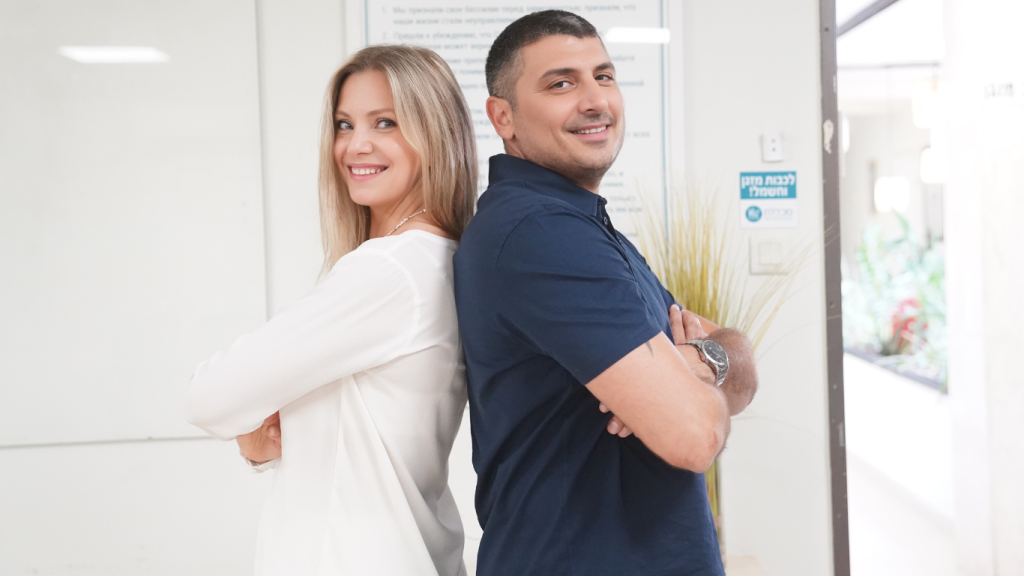
We Are a Role Model
At DaoTherapy Rehab Thailand, we see ourselves as a role model in the field of rehabilitation and addiction treatment. Our expertise, combined with our holistic and innovative approach, sets us apart as leaders in the industry. We uphold the highest standards of care and are dedicated to providing each client with the tools they need to live a full, balanced, and meaningful life. Our commitment to continuous improvement, attentive care for each individual's needs, and the use of cutting-edge treatment methods establish us as a role model in addiction treatment.
Radical Acceptance
Radical Acceptance is a key concept at DaoTherapy Rehab Thailand, where we encourage individuals to fully embrace their reality without resistance. By acknowledging and accepting even the most difficult emotions and situations, clients can release the struggle against what cannot be changed and focus on healing. This practice, integrated into our therapy and mindfulness sessions, empowers individuals to move forward with greater peace and resilience.
